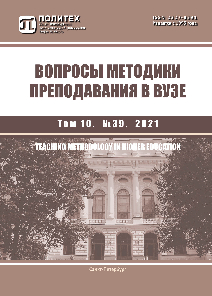Information technologies and teaching translation
The tempting illusion of effortless translations readily obtained online, in addition to the perpetual search for simple ways of successful performance with maximum ease and minimum time when assigned to tasks outside of the domain they specialise in, might develop into an obstacle preventing the students from working productively to master grammar and structure of a foreign language, both being vital as the essentials for building up orderly knowledge in the field. A series of experiments involving online engines from the websites run by the most widely known translation companies (Babylon, Promt, Systran) and some Internet giants (Microsoft and Bing, Google, Yandex) to find out the true power of machine translation has clearly demonstrated that, in spite of the continuous improvements in computer technologies and techniques for machine translation, whose great future is undeniable, so far the online translations are well below the minimal expected standards, and cannot be used for any practical purpose by people with insufficient command of the language, or lacking the appropriate expertise for editing and correcting such translations. Electronic dictionaries, while larger and more convenient than the printed ones, are incapable of translating by themselves, same as the semi-automatic translation systems (such as Trados) designed with a view to being used by those who possess the required skills and competence, thus remaining unsuitable for the category of learners in question. The results of the research clearly testify to the fact that at present there is no alternative to continuous work, hard and systematic, on studying the fundamental basics of translation to successfully acquire the minimum knowledge in a foreign language needed by the prospective specialist in the future.



